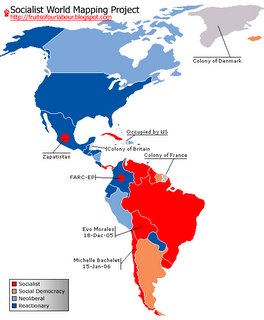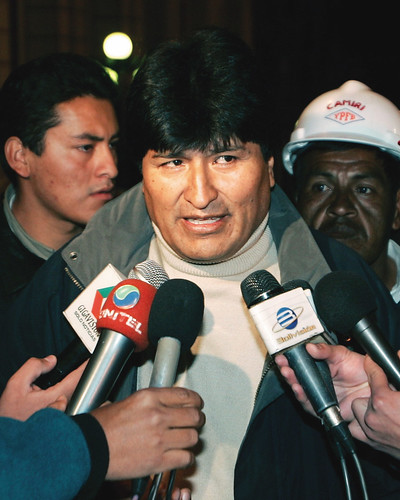 Well, one of the places I've discovered when I visit NYC is called May Day Books located at 155 1st Ave. May Day is an anachist collective operated by unpaid volunteers. May Day has carved out a tiny space within the "Theater for New York City" but as you can see from the picture it is quite cozy. You will find books, zines, music, and videos that you are unlikely to find anywhere else. They even have Zapatista coffee! Check out their web site here: http://www.maydaybooks.net
Well, one of the places I've discovered when I visit NYC is called May Day Books located at 155 1st Ave. May Day is an anachist collective operated by unpaid volunteers. May Day has carved out a tiny space within the "Theater for New York City" but as you can see from the picture it is quite cozy. You will find books, zines, music, and videos that you are unlikely to find anywhere else. They even have Zapatista coffee! Check out their web site here: http://www.maydaybooks.net
For online shopping, I just today came across another anarchist collective called AK Press. AK has several locations in the US and England and relationships with some of the top publishers of alternative media. AK describes themselves as:
AK Press is a worker run book publisher and distributor organized around anarchist principles. All decision-making, including which titles we distribute and what we publish, is made collectively. Our goal is to make available radical books and other materials, titles that are published by independent presses, not the corporate giants, titles with which you can make a positive change in the world.I found their site really easy to use and they had a lot of great books I was looking for but could not find elsewhere. Check them out here: http://www.akpress.org
For a more mainstream but unionized and pro-labor bookseller, there is Powell's. Although they do not carry very much of the alternative press publications, they do carry the majority of the mainstream books and a good selection of academic books you won't find elsewhere. They also have a decent used book selection. Check them out here: http://www.powells.com
Finally, another great place to browse is Colophon Books in Ithaca, NY. Downtown Ithaca is a book-lovers paradise with seven independent book sellers all more-or-less within walking distance of each other. Unique for an American city, central downtown Ithaca is setup as a walking mall called the Commons, with many great restaurants, shops and, of course, book stores. Colophon is interesting because they specialize in unique and macabre books including out-of-print, small print run and import publications. I picked up some beautiful Arthur Machen titles there printed using traditional methods; the form of the books appropriately echoing the beauty of the writing.
They are located at 205 N Aurora St, and you can check them out here: http://www.colophonbooks.us







